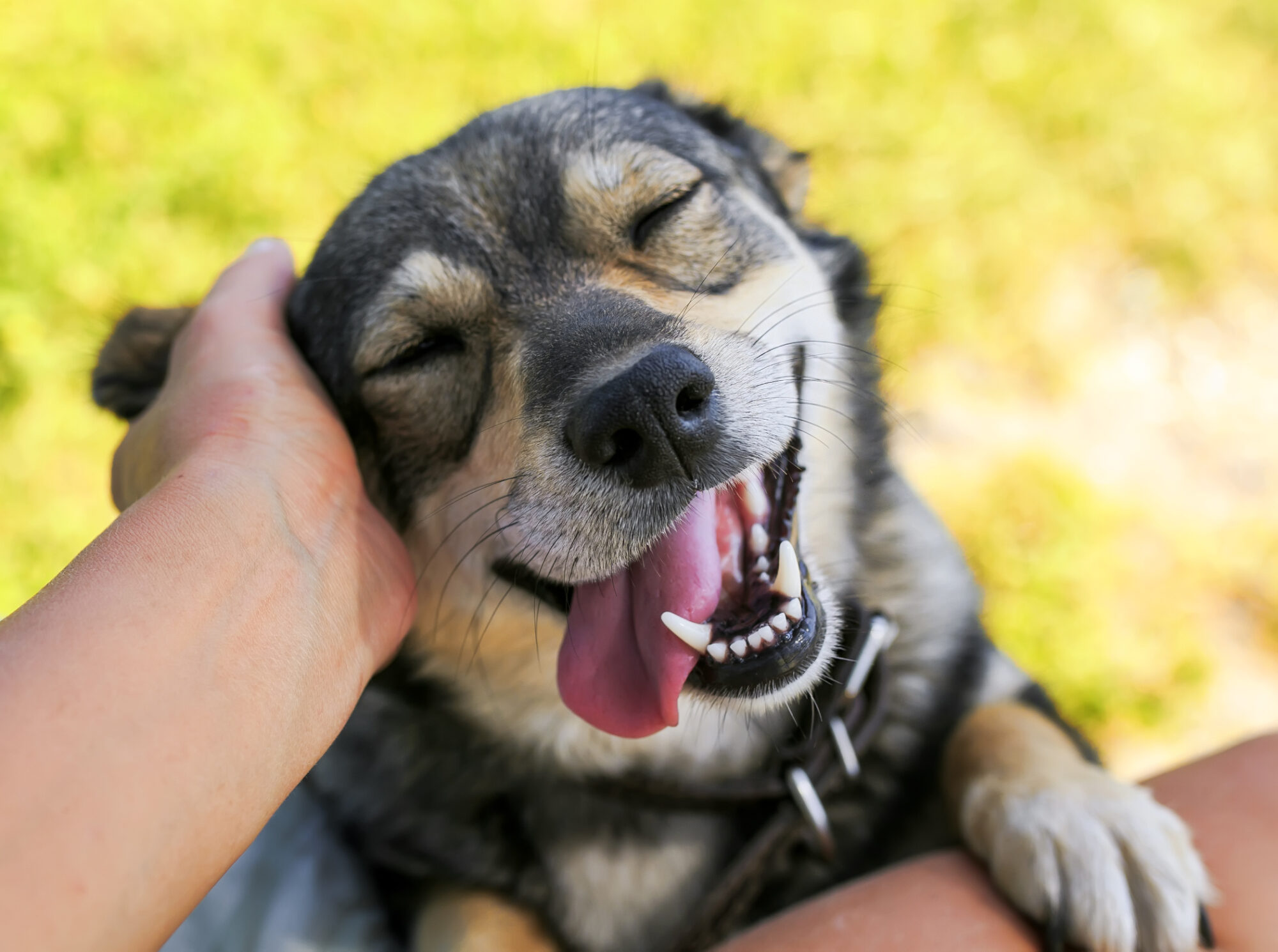
Many of us love to give our pets a daily dental chew or treat. After all, we like to give them treats (and see their eyes light up with love) and we like to do something good for their teeth and oral health. But did you know that some of the very commonly advertised “oral health” products on the market are either unhelpful, unsafe, or downright bad for our pets?
At Felton Veterinary Hospital, we looked into this recently and found that not all dental chews and treats are created equal. And we bet you can’t wait to hear what we found out!
At Home Dental Care
First things first. There are many, many dental products on the market today. Some of them even advertise that they can take the place of brushing and dental cleanings. But the evidence shows that your first and best defense against bad breath, swollen gums, plaque, and periodontal disease is a dental exam and cleaning with your veterinarian, coupled with daily toothbrushing. Dental chews and treats can be a good addition to your pet’s daily oral health routine. But they shouldn’t be used in place of tooth brushing and regular professional dental cleanings.
Dental Chews and Treats
We mentioned that not all dental chews and treats are created equal. Luckily, there is an organization that has given it’s seal of approval to some of the treats and chews available today. The Veterinary Oral Health Council is an organization that evaluates pet products to see if they meet standards for reducing plaque and tartar. Make sure the dental chew or treat you offer your pet has their seal of approval.
However, be aware that although veterinary dentists find the VOHC approved products safe and effective, the VOHC does not test specifically for safety. Don’t leave your pet alone with any chew or treat, and be aware of risks when giving anything to your pet.
Precautions With Dental Chews and Treats
There are some dental health treats advertised which are downright unsafe, or full of fat and unwholesome ingredients that are bad for your pet. Here are a few things to keep in mind when choosing a dental treat for your pet. If you have questions, call us.
Rawhide bones — these can be effective against plaque and tartar, but can also be swallowed in large chunks by some dogs, putting them at risk for gastrointestinal obstruction – and possibly a surgery. Rawhides are also quite high in fat, so watch your pet carefully, make sure they actually chew them, and limit calories in other places if you give one.
Avoid dried pig ears and hard bones — in addition to high fat content (which could push some dogs into pancreatitis), hard chews, hard plastic bones, sterilized beef bones or cow hooves are likely to cause tooth fractures and other problems.
Cooked bones — these are too hard and unyielding to offer any plaque prevention, and they could cause a tooth fracture or a gastrointestinal perforation or obstruction.
It is generally accepted that chews and treats that are soft and allow the teeth to sink in are the most effective against periodontal disease. Give us a call if you have any questions about your pet’s dental care and health. We’re here to help make sure your pet stays healthy and happy!


 Schedule an Appointment
Schedule an Appointment
